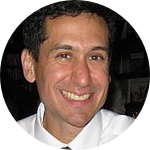About This Project
We have special access to blood specimens collected from more than 9,000 cancer free people. These individuals were followed-up for up to 9+ years to document all new lung cancer cases. Testing blood that was collected prior to cancer diagnosis will be the key to determining whether the infections came before the cancer, and could therefore have contributed to cancer risk.Ask the Scientists
Join The DiscussionWhat is the context of this research?
In 2007, two new human polyomaviruses, KI Virus and WU Virus, were discovered in association with lung infections. They are part of a virus family with demonstrated cancer causing potential and are likely suspects for viruses that may increase lung cancer risk. Using blood from a nine-year study of over 9,000 men, we will test if prior infection with these viruses increases the risk for development of lung cancer. To do this, we will test blood from 200 lung cancer cases and 200 cancer free controls for antibodies specific to KIV and WUV. Antibody levels will be compared between those who were lung cancer free and those who developed lung cancer.
What is the significance of this project?
Lung cancer is the only cancer on the global list of the Top 10 causes of death. Currently, five out of six patients diagnosed with lung cancer will die within 5 years. People living with AIDS and transplant patients have a higher risk for lung cancer. These are telltale signs that infections may cause at least some lung cancers. Though viruses are known to cause cervical cancer, most liver cancers, and some forms of leukemia and skin cancer, no viruses have yet been definitively associated with lung cancer. Because the number of people diagnosed with lung cancer is higher than other cancers, and because 85% of people diagnosed with lung cancer do not survive more than 5 years, there is an urgent need to identify infections associated with lung cancer.
What are the goals of the project?
The funds will be used towards purchasing reagents to test the 400 specimens. It costs $12.50 to test each specimen including 10% resampling. This project can be done on a shoe string budget because everything else has been donated for this project: the specimens, my personal time, consultant time, and access to world-class laboratory facilities. 100% of the funds received will pay for laboratory reagents (laboratory chemicals) that will be consumed in the study.
Budget
The funds will be used towards purchasing reagents to test the 400 specimens. It costs $12.50 to test each specimen including 10% resampling.
Meet the Team
Affiliates
Team Bio
Danny graduated from the Massachusetts Institute of Technology with a Bachelor of Science in Biology. While in college, he cut his teeth in research through his work in a renal physiology laboratory at Harvard Medical School. Post college, he invested his time and energy in various communities ... beginning with refugees in Lowell, MA and ending with the urban and rural poor in Cambodia. He then applied to the School of Public Health at the University of Washington and earned a master of public health degree in epidemiology / global health in 2010. He continued in the epidemiology PhD program, and spent the 2011-2012 academic year in Beijing on an NIH/Fogarty International Clinical Research Scholars fellowship. It was during this time in Beijing that his interest in infectious causes of cancer was kindled. He is currently a cancer prevention trainee at the Fred Hutchinson Cancer Research Center.Danny Colombara
Danny graduated from the Massachusetts Institute of Technology with a Bachelor of Science in Biology. While in college, he cut his teeth in research through his work in a renal physiology laboratory at Harvard Medical School. Post college, he invested his time and energy in various communities ... beginning with refugees in Lowell, MA and ending with the urban and rural poor in Cambodia. He then applied to the School of Public Health at the University of Washington and earned a master of public health degree in epidemiology / global health in 2010. He continued in the epidemiology PhD program, and spent the 2011-2012 academic year in Beijing on an NIH/Fogarty International Clinical Research Scholars fellowship. It was during this time in Beijing that his interest in infectious causes of cancer was kindled. He is currently a cancer prevention trainee at the Fred Hutchinson Cancer Research Center.
Project Backers
- 34Backers
- 102%Funded
- $5,622Total Donations
- $165.35Average Donation
